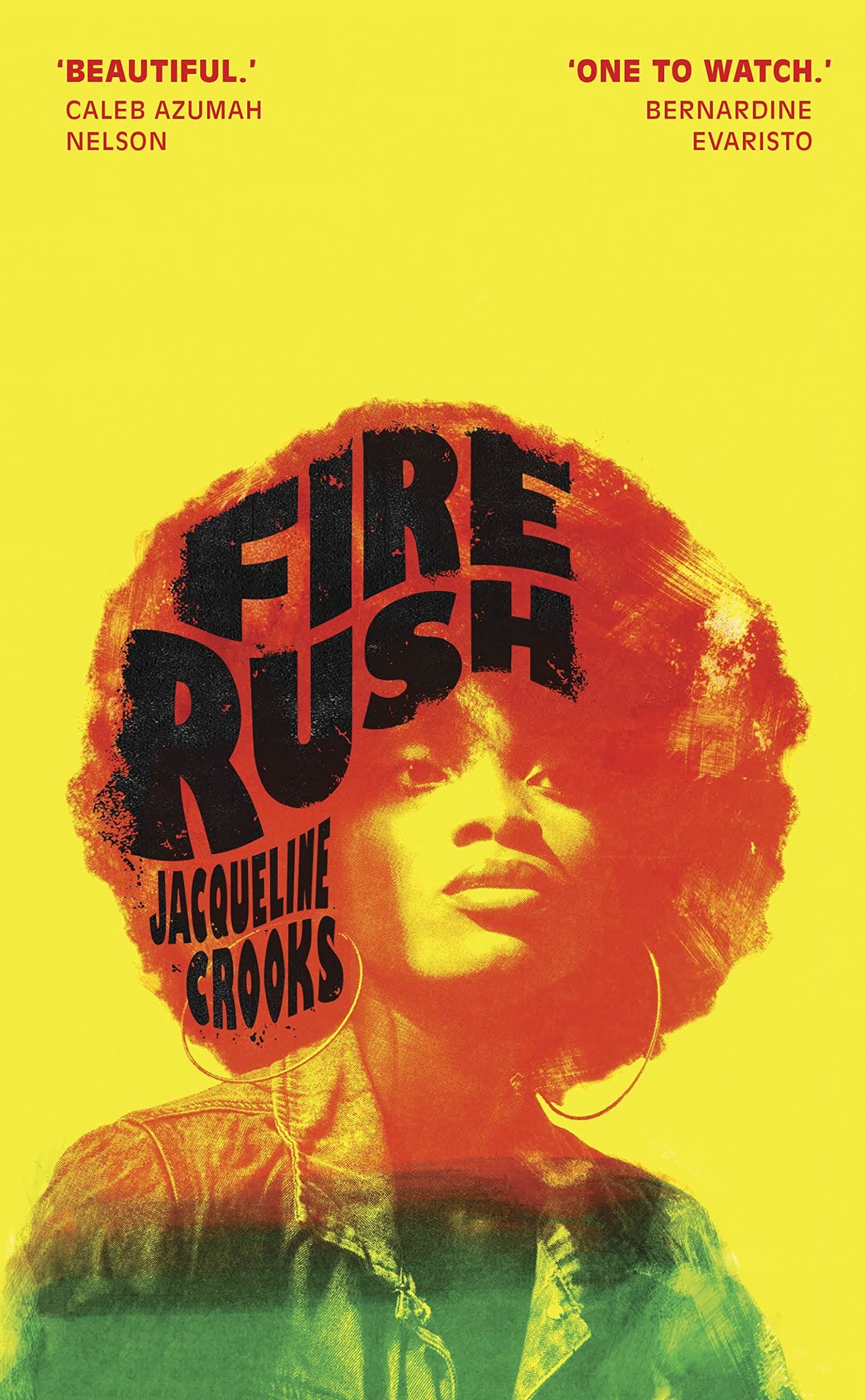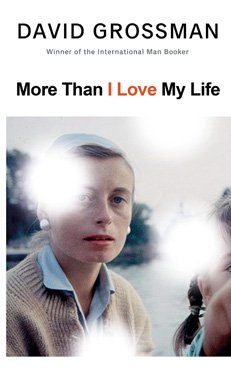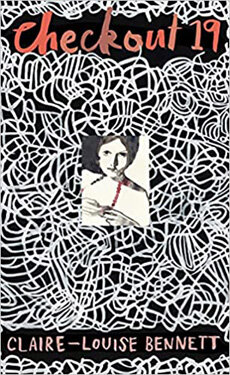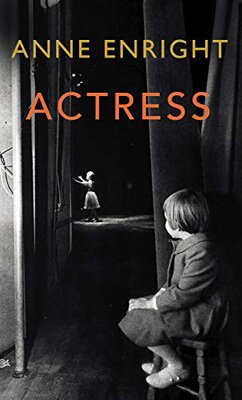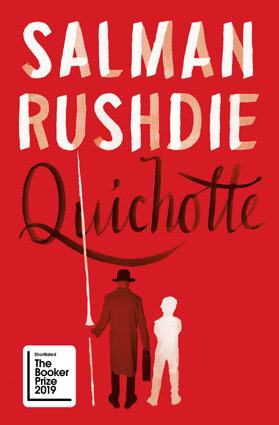This novel centres around Hai, a young man who is contemplating suicide at the beginning of the novel when suddenly a chance encounter allows him space for self-reflection and to forge new connections. I felt this is a very emotional story which meaningfully portrays the links between a group of working class people in New England while exploring issues like depression, drug addiction, aging, illness and failed dreams. But there's a lot of warm-hearted friendship and humour in the story as well in showing the quirks of this lively cast of characters and highlighting crass commercialisation through its portrayal of HomeMarket, a fast food restaurant where every day is Thanksgiving. Though this venue is fictional it feels like a very plausible American invention where all the food is mass produced but presented as if it were just cooked in the family kitchen. One of its employees Maureen appears to the public like a sweet old granny taking customer orders but in fact she's a foul-mouthed drinker who harbours conspiracy theories and must ice her arthritic knees with frozen packs of macaroni and cheese. She's also mourning the loss of her son and there are some exchanges she has with Hai about this which are so achingly tender. Hai also forms a strong kinship with Grazina, an older woman experiencing the onset of Alzheimer's who offers to house him. In exchange he becomes her carer and this poignantly demonstrates how friendship can grow between very different individuals.
Vuong's methodology is to shows us the fabrication of a certain picture of life fuelled by ideals while gradually revealing the difficult reality underneath. The story demonstrates that illusions can't be sustained whether it's the sugar-packed corn bread which appears to be nurturing but will cause diabetes, the tale of escaping from a war-torn country Hai invents for Grazina to help her navigate through her bad spells, his cousin Sony's belief that his father was a war hero with diamonds embedded in the palm of his hand or Hai's own invented life as a med student which he describes to his mother on the phone. Eventually it all comes crumbling down and the consequences can be delayed but eventually must be dealt with. Yet there's something about the culture that encourages these individuals to perpetuate such fantasies to the bitter end. For example, I felt HomeMarket's manager BJ was a very compelling character as she believes in the rhetoric of the fast food chain but also aspires to become a pro wrestler outside of that environment. However, this is all undermined by the regional manager who utterly trashes the way she allows this branch of HomeMarket to have small signs of individual identity.
I really appreciated how Vuong portrayed the atmosphere and environment of this fast food restaurant so dynamically. When I was at college and immediately after I graduated I worked at a Burger King as their maintenance man so I'm very familiar with the gritty reality of such a job – being plied with training videos, corporate lingo and hauling mass-produced boxes of food into the freezers. But these locations are also places where there's an interesting mingling of individuals (usually young and old) who are so distinct and a real camaraderie develops under the company's insistence on being a team and the daily close proximity to the other employees. I feel Vuong did an excellent job at capturing the nuance of this. He shows the many personalities of these workers and the familiarity they form – from being sensitive to each other's moods/individual needs to a physical awareness of one another. I like how he described this in an interview as “circumstantial family”. There's also a kind of groupthink which occurs in such an establishment where some employees feel compelled to really dedicate themselves to working for the perceived good of the restaurant. Many earnestly do such a physically demanding job even though they are paid so little. Of course, as the regional manager of HomeMarket demonstrates, the restaurant and the upper management really don't care about the employees except as parts of the establishment's human machinery. In contrast, there is the nearby recently-opened and eternally deserted pizza restaurant which we learn was launched by a family and it will sadly be doomed to failure when up against such a competitive corporate chain who offers their own inferior form of pizza as a new menu item. This feels like a stark symbol of how there is little chance of achieving the American dream as there's little opportunity outside the slick and pervasive force of large companies.
It was a pleasant surprise to me that this novel was so much about working life at this fast food restaurant but, of course, it also very much centres around Hai's connection with Grazina. I appreciated the contrast in these two individual's lives, one who is so young and struggling to establish a meaningful way forward and the other rapidly deteriorating due to Alzheimer's disease. The relationship they form is so poignant. It was touching to learn in the Oprah interview with Vuong that the character of Grazina and their connection was based on one which Vuong formed with his partner's grandmother. There are such vast differences between these two characters in their experiences and points of view but it's touching how there is genuine care and respect. They use this opportunity to learn from one another and really see each other – in a way that Grazina's own son doesn't when they travel to his household for dinner. This meal with her family forms such a stark contrast to the idealised Thanksgiving meal which the fast food restaurant offers where Grazina's home cooked dish is rapidly set aside and Grazina's family speak to her in a condescending way. It's so sad how the elderly in America are often pushed aside, put into homes and, as Vuong describes, cared for by working class individuals who are sacrificing their own family life to look after other people's parents. I know there's no easy solution to this issue, but I feel like this story is shining a light on that reality and it's tragic the way in which Hai who is the only one who genuinely cares about Grazina.
In terms of plot not much happens in this novel as the characters don't dramatically progress and change. Vuong has mentioned in many interviews how he intentionally did this as he disagrees with the notion that there must be a definite resolution in a story and in the lives of characters – as that doesn't happen in most people's lives. I know some readers have found this aspect of the novel frustrating but I appreciated spending time with the characters, observing their interactions and the confluence of their points of view – whether it's the racism which grill cook Wayne must endure, the way in which the employees deal with a drug user who frequents and overdoses in their restaurant or the terrifying excursion to a slaughter house some employees take in an effort to make extra money. To me this later scene was one of the stand out moments of the novel. Other parts and some aspects of the book didn't entirely work for me. I felt sometimes he leaned too far into the quirkiness of the characters with the weird sculpture Maureen makes Hai and the strange mission to try to retrieve the fictional diamond of Sony's father. I also felt the affair Hai has with one of the customers was dropped into the story a little too abruptly. In a way, I like that Hai's homosexuality is treated as just another aspect of his identity but their affair and connection seemed quite abrupt. Also, while there are some beautifully poetic descriptions Vuong also sometimes goes a little over the top with his metaphors and lyrical reveries. However, overall this is a moving and impactful novel.



